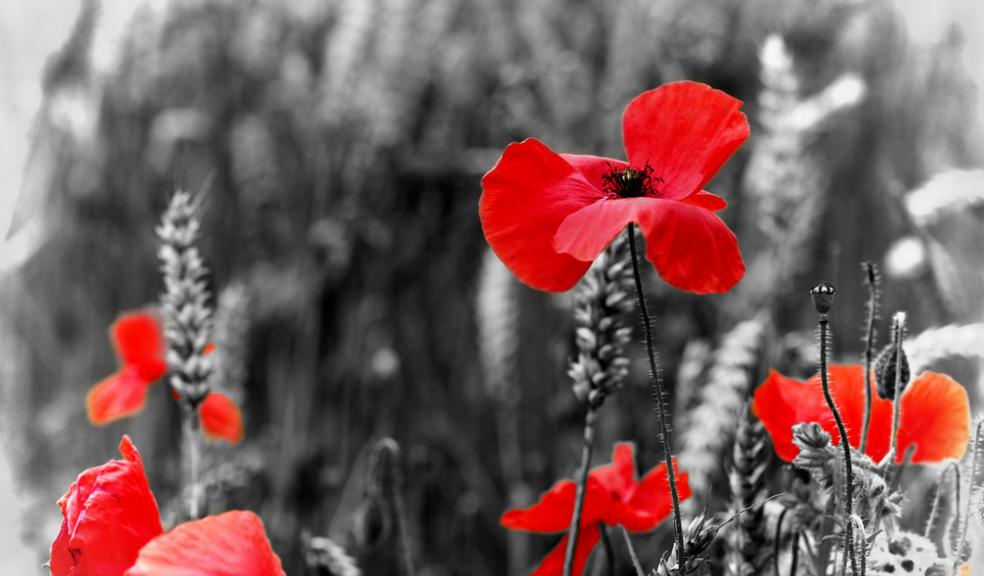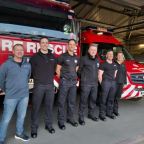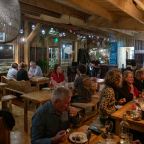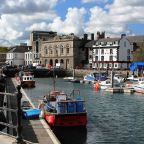
Silent walks for First World War anniversary
This summer seven National Trust places in the South West will be among twenty-three across the country which are inviting visitors to share a silent walk of remembrance to mark the anniversary of the outbreak of the First World War.
‘There were our own / there were the others’ has been conceived by the artist Alec Finlay as a contemporary act of remembrance for all those affected by conflict across the last one hundred years.
Each National Trust place involved in the project, In addition to the remembrance walks, will have a simple installation of a sandbag, along with two lecterns. On one lectern will be a contemporary British poem and, on the other, a poem from another country translated into English; both reflecting on conflict. The installations are inspired by a photo of Amiens cathedral packed with sandbags during the war, a poignant reminder of the devastating impact of the bombing of Europe.
Sara Currant, House Manager at Knightshayes says: ‘We are really excited that Knightshayes was chosen to take part in Alec’s project. It’s a great opportunity for us to mark the role Knightshayes played in the war effort during the centenary year. Our installation will be in the drawing room of the house which we know was used as a VAD hospital for recuperating soldiers.
‘Our installation will be launched on Wednesday 18 June. Leaving from reception in the stable block at 2pm, the walk will be free to attend, though places must be pre-booked in advance by calling 01884 254665 or emailing knightshayes@nationaltrust.org.uk.
Another place taking part in the project is Overbeck’s near Salcombe. Staff member Kaye Haworth says: ‘We are lucky that Ken Cockburn will be joining us as our host poet.’ Ken will read poems inspired by wars past and present, and then he, and our historian and volunteer Dr Caroline Boggis-Rolfe, will lead us on a circular walk from Overbeck’s to the viewpoint above the estuary. During the walk Caroline will explain to the group our fascinating links with the First World War. I am looking forward to the day immensely – it will be a moving way to share our story with our visitors’.
To join the Overbeck’s walk please ring 01548 842893 and reserve your tickets. Do bring stout shoes with you as the coastal path is rocky and uneven in places. This is a free event and will include entry to the rest of our wonderful museum and garden, but places are limited.
On some of the walks in other Trust places, featured poets have been selected by Finlay with Ken Cockburn and Heather H. Yeung. The poets include Alice Oswald, Pablo Neruda, Paul Celan, Mamhoud Darwish, George Oppen, Bertolt Brecht and Susan Tichy.
The wide-ranging poems reflect 'our own' and 'the others' in many different ways – from service personnel, peace activists, refugees and exiles, to freedom fighters – sharing individual experiences of pathos, grief or redemption.
Alec Finlay says: “Each generation must find its own way to make an act of remembrance. As wars themselves have altered in catastrophic ways, shifting from fixed front-lines to the city streets, affecting soldiers and innocent civilians alike, so the events that we are marking have altered, and we must discover new ways to recognize this. “There are no soldiers or nurses alive who served in the First World War; their eye-witness passed with them. That ‘Great War’ which was supposed to end all wars, ushered in a hundred years in which conflict multiplied and suffering deepened. For this project, rather than monuments cast in bronze, we will walk in silence, scatter a few poppy seeds, and read pairs of poems. Poets can offer acts of witness which acknowledge that ‘our own’ and ‘the others’ are categories which have little meaning, except that they may remind us of our common humanity.”
Tom Freshwater, National Trust Contemporary Art Programme Manager says: “All of the places taking part have strong links to armed conflicts from the last 100 years. By giving voice to first-hand experiences of war over this period, drawn from many countries and cultures, it is possible to see a common humanity across all the suffering and loss experienced by so many.”
‘There were our own / there were the others’ is a Trust New Art commission for National Trust, supported by Arts Council England.
The poems and biographies of the poets are also available to read online.
Walks are free to attend but booking is essential. Details of the Stourhead walk are available by phoning 01747 841152. For a full list of venues and dates, and to book a place, visitwww.nationaltrust.org.uk/firstworldwar













